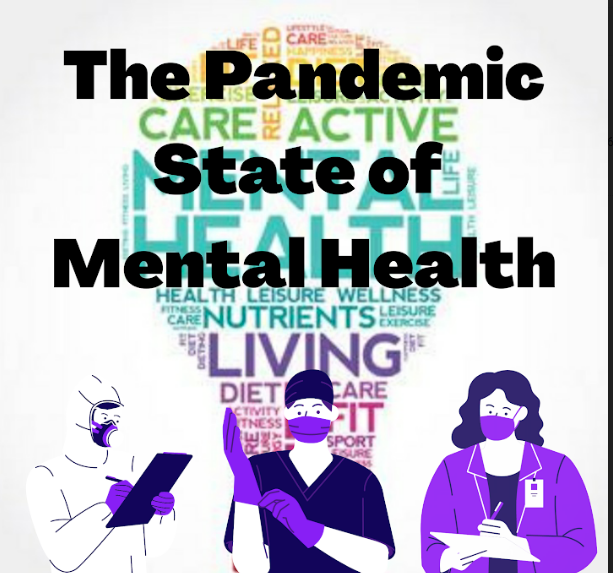
The Source |The Pandemic State of Mental Health
[ad_1]
Our society has been in the state of a mental health crisis for over 7 months. Prior to the environmental shutdown’s that began last March which socially distanced our communities, too many people were already suffering through social and racial injustices & inequalities, political controversies and mental, emotional & physical suffering. The Center of Disease Control and Prevention (CDC) recently released a study that was conducted during the pandemic, from 5,500 adults. The findings from this study conclude that their has been a 40% increase in mental health symptoms during the COVID-19 pandemic. And what exactly has increased during COVID-19 times? Economic hardships leading to the inability to take care of our basic needs of food, shelter and clothing; unexpected unemployment at record highs; social isolation; the inaccessibility to carry out socially healthy self-care routines; inaccessibility to common need items such as food, water and self-care items; illness; hundreds of thousands of deaths; grief; uncertainty; trauma; suicidal ideations; anxiety; stress, depression, substance abuse and addiction is our current pandemic.
Some disproportionate populations and demographics are suffering more. Especially children, essential workers, young adults, parents of infant and young school aged children, unpaid caregivers, racial/ethnic minorities and those who are facing lower socio-economic conditions. The closures of non-essential businesses for months had led many people to live a more sedentary lifestyle, leading to the development of many emotional and physical illnesses. Congruent to the predictions about the impact of the COVID-19 pandemic, many people are suffering more than our society has prepared to deal with environmental crisis. The age of the COVID-19 pandemic is rare, because for the first time in the history plagued illnesses, technology and the internet has been fueling our economies while in isolation.
What can anyone do to help strengthen their mental health during these challenging times? What is certain is that our old ways of coping may not be accessible any time soon. Adjusting to the changes in our lifestyles has become the new norm. Here are some TIPS from The Happy Therapist that can help anybody maintain their resiliency through these challenging times before they reach an unhealthy breaking point.
1. Start communicating- Text, email, call or video friends and family. The healthy kind. And by that, I mean those positive and helpful friends and family that you feel confident will not trigger any negativity or painful emotions. When faced with difficult situations, allowing yourself to find relief through your expression can help you fight through what your battling.
2. Focus on your health: Exercise. Eat healthy. Practice yoga and meditation. And don’t forget to focus on your breathing. The National Center for Complementary and Integrative Health has released a recent study about the transformation of someone’s personal wellbeing when they incorporate healthy lifestyle choices, including focusing on their mental and emotional health. During challenging times that induce stress, trying to be healthy in the areas that you have control over can make a tremendous difference in how well you are able to cope. So aim to live a balanced lifestyle and incorporate time for some self-care daily.
3. Participate in Therapy- Going to see a therapist is like going to the gym, for your mind! People go to therapy because they want to better their life. Going to therapy gives individuals insight, that becomes unique wisdom to those individuals. When faced with a crisis, professional insight from someone training in emotions and humanity can do much to changing ones circumstance. And in today’s day and age, you don’t have to visit a therapist office and lay on their Freudian couch. In 20202, we have tele-therapy through video streamed on your smart phone, computer and tablet, therapy applications and even text and long distance therapy for individuals, groups, families and couples.
These Pandemic coping TIPS are only a few ways that you can get through a mental health crisis. This article is written by The Happy Therapist, a double board licensed psychotherapist, more formerly known as Ms. Sonia Singh, LCSW, LCADC. The purpose of this article is to educate and inspire our culture with mental health awareness. To find similar education and information from this author, please visit COITHEALTH.COM or visit @thehappytherapist and @coithealth on Instagram.
[ad_2]
Source link



No Comments